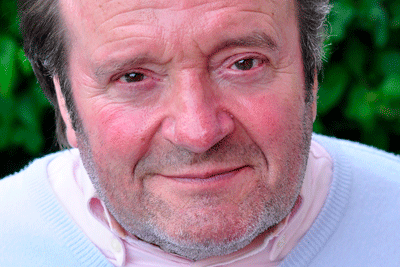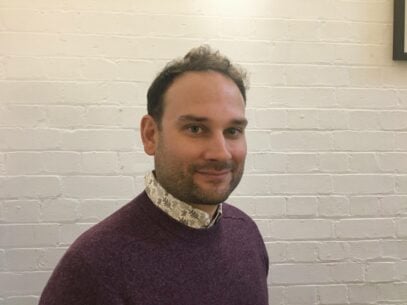7 January 2025
By Ellie Haworth, Head of Children’s Services Transformation and Improvement, SCIE
I was thinking about Dr House. Dr House is a fictional medic, working in a fictional hospital, with fictional patients. However, he might exemplify a paradigm of the perfect doctor. Whilst he is flawed, difficult and anti-authoritarian; he is brilliant, insightful and almost always right. His patients don’t die because of his personal brilliance, but also despite being mistreated by him, they almost always come to the point of thanking him in the end. Equally, his colleagues prize working with him despite his irascibility and his managers value him despite the huge expense and risk that he generates.
He is a classic example of “the ends that justify the means.” This Machiavellian principle stating that it doesn’t matter if Dr House is unethical, brutal, and grumpy because his successes make it worth it.
You may know that Dr House is fairly thin imitation of Sherlock Holmes. Sherlock Holmes is one of literatures most successful and memorable fictional creations. A brilliant detective with some socially difficult behaviours. Holmes can identify the differences between brands of cigarettes by their ash.

He can tell the weather in a visitor’s home by observation alone. He can defeat the worst of criminals with his intellect and deductive reasoning. He can protect the weak with his mastery. However, he is rude, irascible and breaks the law at his own discretion. In addition, he misuses substances, can’t maintain healthy relationships and has an exploitative network of child workers in the Baker Street Boys.
So, would we be glad if Sherlock Holmes was real or are we better off that he is constrained within the walls of fiction? Is he the perfect detective or a liability?
In addition to fictional doctors and detectives, I am sure that we can all think of many television and film lawyers, judges, nurses, spies and the like. And yet social care doesn’t show up on our screens with any frequency.
Do the general public even know what workers make up the social care workforce? Do they know about the family support workers, the youth workers, the care workers, the occupational therapists and the social workers? Do they know about all the other people who make up the rich tapestry of children and adults’ social care? Do they know what we all do? How we all fit together? How what we do makes a difference?
I think you’d be hard pressed to find fictional examples of the perfect social care worker. That’s a challenge, as a sector do we have an exemplar out there who really stands for our values, professional skills and priorities? Which caped crusader really speaks to social care?
I think we are probably lucky that we don’t have too many of the negative, counter examples either. We are not rich in the anti-social care worker types. As much as the general public might not be able to conjure up a famous, fictional “perfect” reablement coordinator. I think they also cannot cite the most awful, fictional placement broker. And there is a benefit to this, because we don’t have to counter unrealistic and unproductive examples. We will be judged by people directly on their experience of us, not against a fictional template – good, bad or indifferent.
So, we have an opportunity to write a fresh script when we are working with people who have not experienced social care previously. This is an enormously valuable opportunity and it is important to reflect on whether we fully capitalise on this opportunity in our work.
However, there are many people who we work with, where we are not encountering people fresh, they have already formed an expectation based upon their encounters with others within social care. It is not fair on us that they are pre-judging us based on the actions of others, but this is our reality.
This is our reality, but it is also an opportunity. We have an opportunity to reverse the impression. We have an opportunity to break the pattern. We have the opportunity to start anew.
We also have the opportunity to show how to build constructive, professional, caring relationships with people who are wary, cautious, and watchful. This is a powerful message that we can send. We are here to work with you, here to be in a caring relationship with you and here to help even if you feel suspicious about me and others like me. We can work with you regardless.
I think social care aspires to work with people in this embracing and resilient way. However, it is not always easy to be this inclusive and resilient as a worker when we are working within stressed systems.
I think there is an important diversity point that needs to be made here. One of the joys of social care is that so many different professional roles combine to make our social care systems work. We are inherently diverse in our constitution. But we also are enriched by the diversity of people who fulfil these roles. We have people with an academic background, a practice background and a lived experience background. Sometimes all 3. We have people from all ages and stages of life. We have people of all backgrounds, religions, races and beliefs. We have people on their first day in social care and people with decades of experience. This means, there is no one view of how to be the perfect social care worker, but we are all continuously creating multiple different ways to be a good social care worker for this individual, this carer, this young person, this family and this organisation. Personal excellence, relational excellence and excellence within frameworks.
So, how do we measure whether we are operating well as workers within this social care system? We have dashboards and datasets. We have reporting and scorecards. We have regulators, inspectors and standards. But we also have the experience of all of those who draw upon our services for care and support.
SCIE is proud to host a co-production steering group, and within Think Local, Act Personal (TLAP) we also have the national co-production advisory group. These bodies help SCIE, TLAP and the rest of the sector in distilling excellence via the voice of lived experience.
If you want to progress your practice and go further along your improvement journey with participation, engagement and co-production, then please get in touch. SCIE is happy to meet and discuss how we can be part of your co-production journey.
Ensuring that your systems, practices and strategies are co-produced might not make them perfect, but it will go a long way to ensure that they are meeting the requirements of your people. And if any of you are worried, I think we can safely say that nobody would co-produce a detective like Sherlock Holmes, nobody would co-produce a doctor like House despite what the TV might have you believe.
So, who is the perfect social care worker? Nobody knows. And that’s OK.



